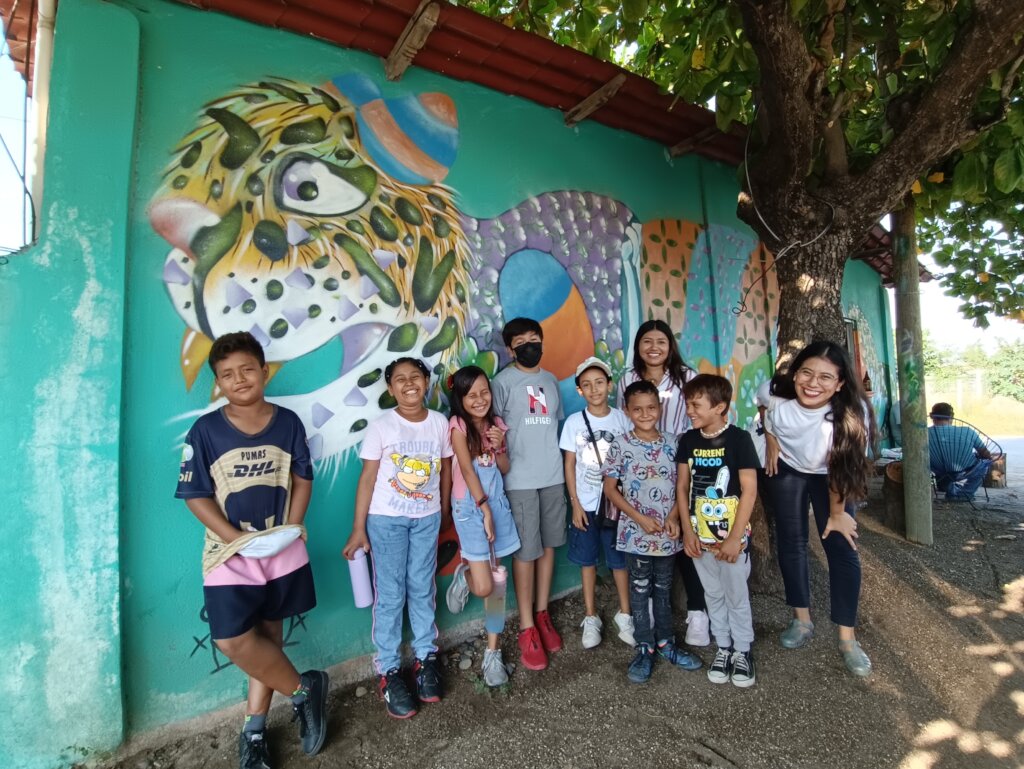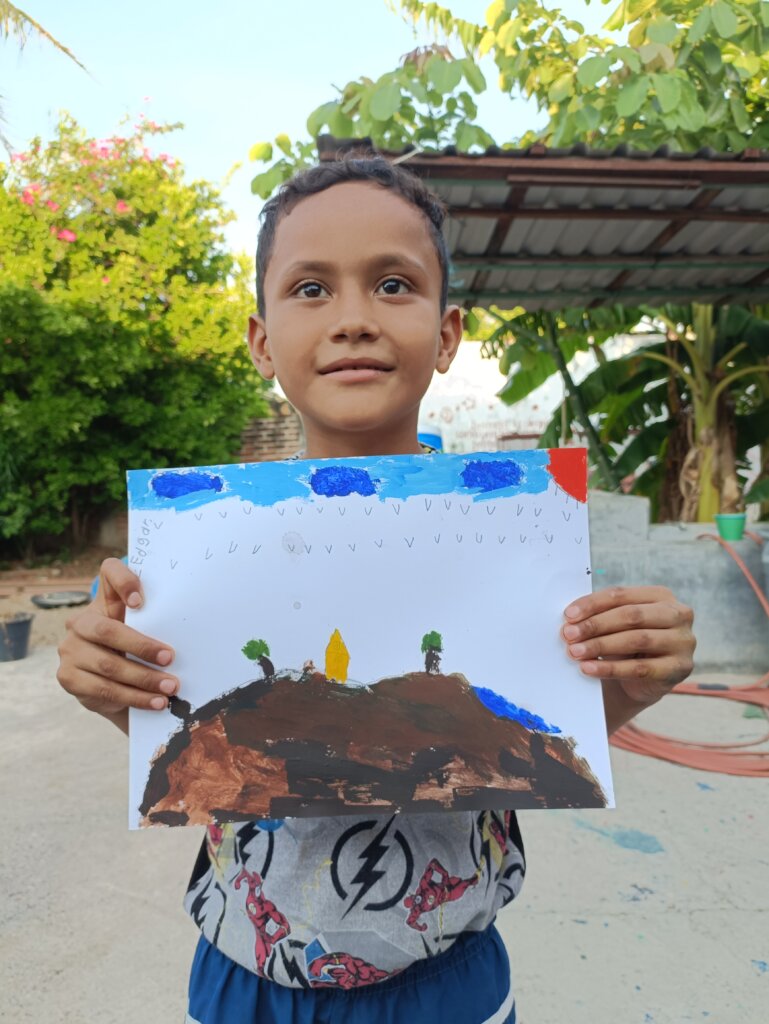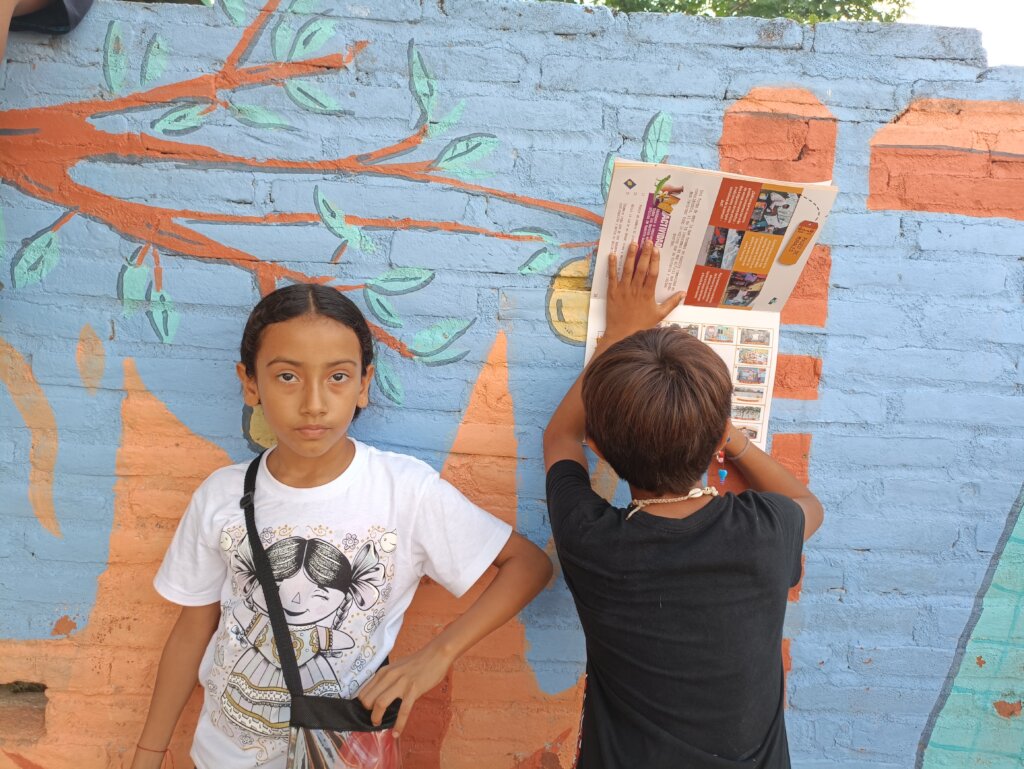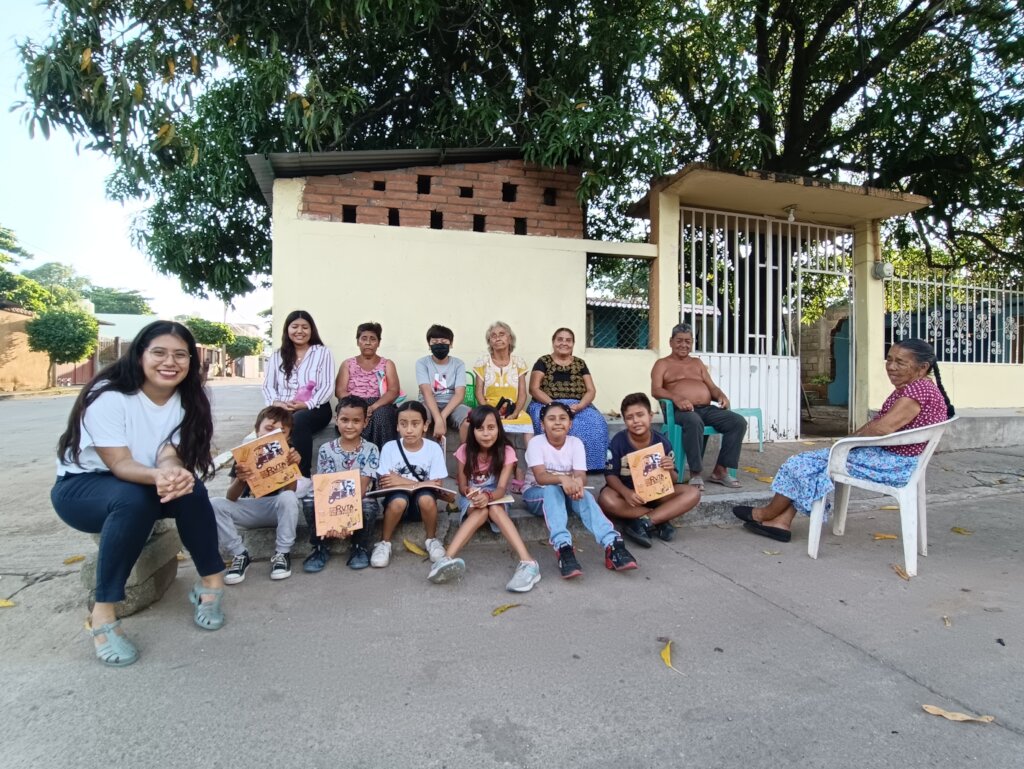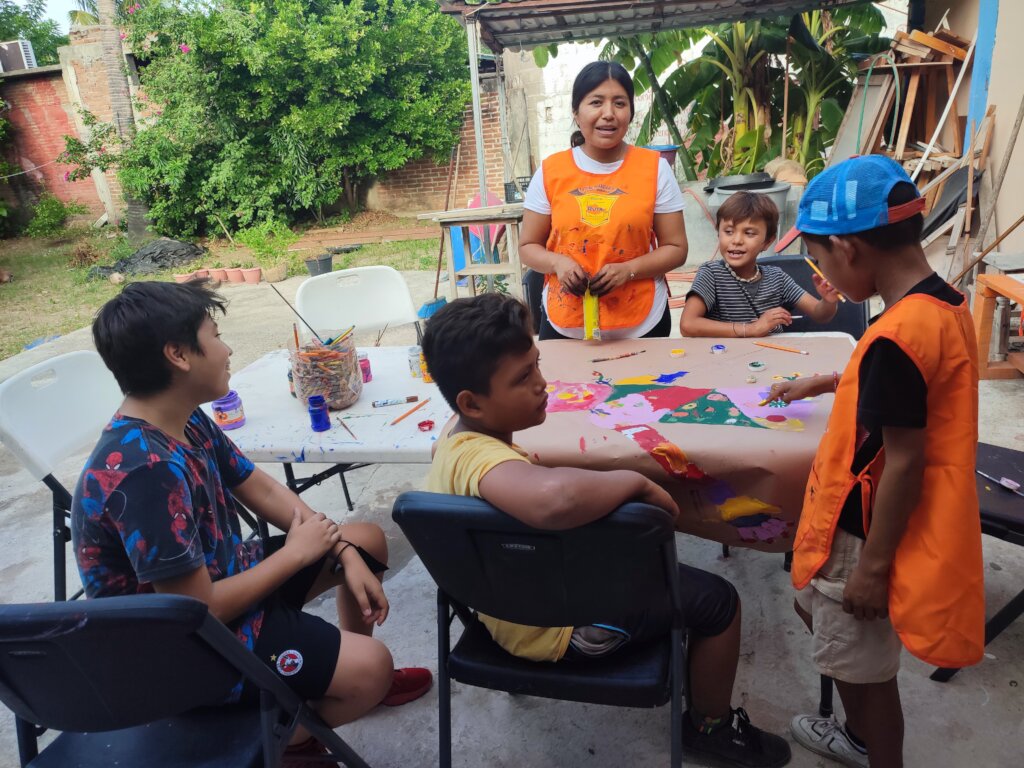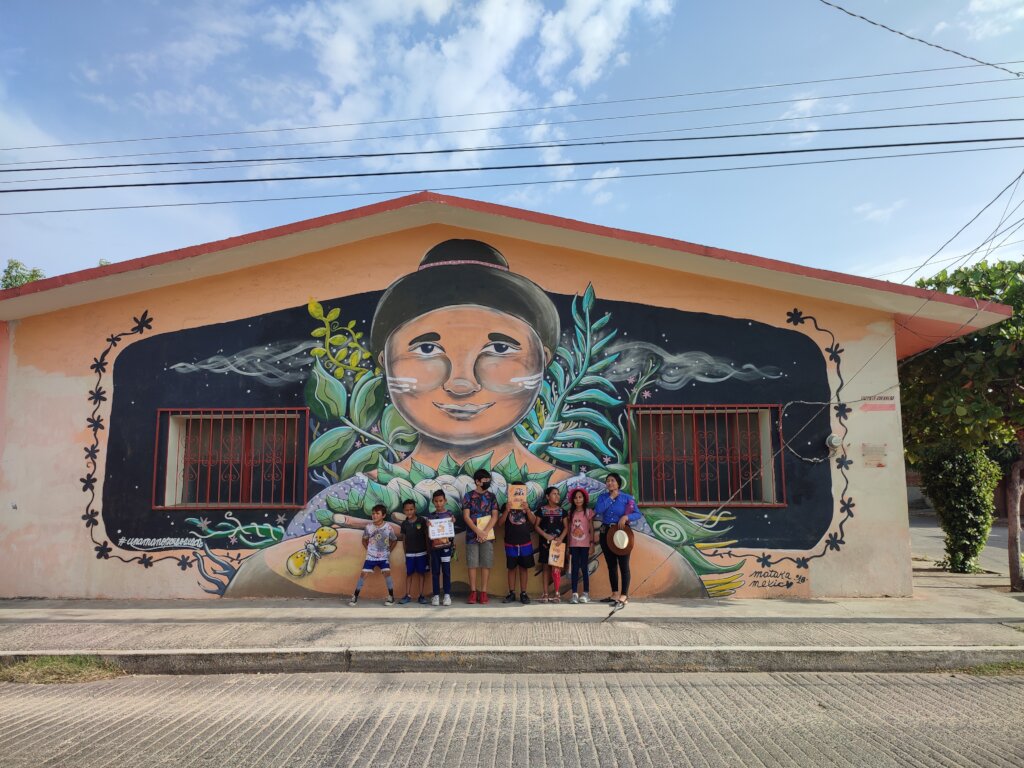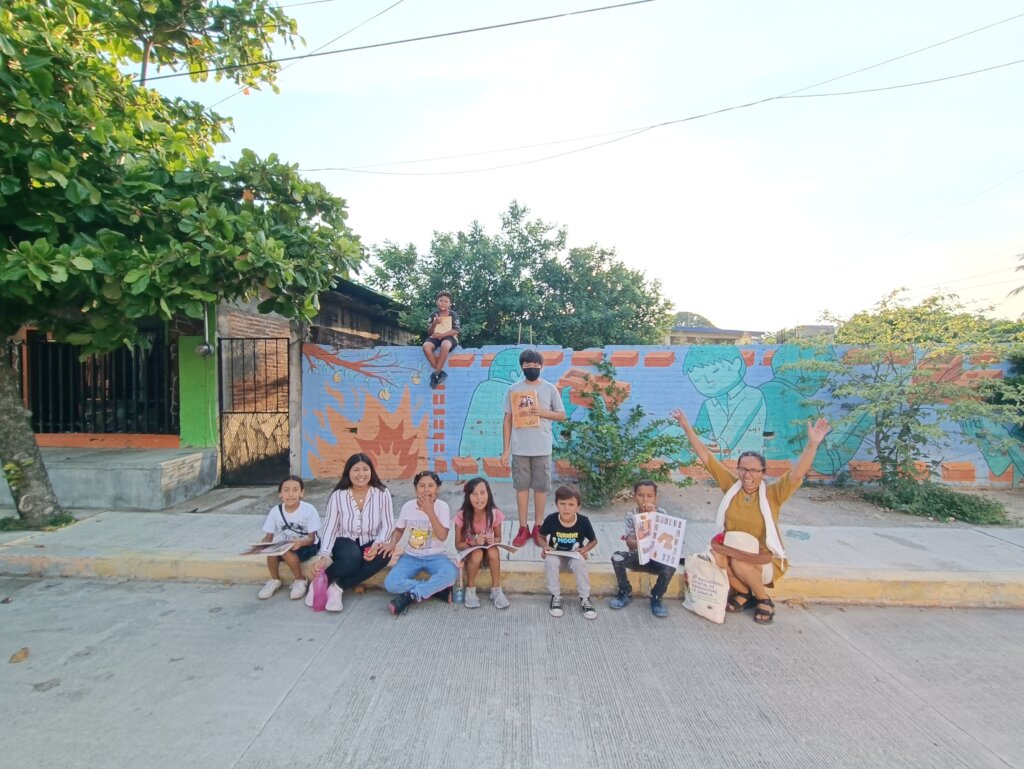By Alejandra Rosado | CEO
This summer Una mano para Oaxaca’s community center was filled with stories that moved our hearts and reaffirmed the importance we have as adults, caregivers and parents to guide the children of our communities to know how to live well, to love the territory and respect life. Children are currently exposed to violence, anxiety, abandonment and many deficiencies.
For several weeks, in the afternoons, we took the route of the murals of traditional trades that decorate our community [Program we created since 2018]. Many of the children had already seen the murals here and there, but they didn’t know the stories behind the murals nor the guardians of traditional trades that were represented on them. Many of the children came from one of the poorest neighborhoods in town, and those who knew the most about the town were the children who have the least attention in their homes, they had walked or cycled all over town, who told us what the town was like through their own eyes, and how it is imprinted in their young memory. Those more privileged children know very little of the village and in general spend more time in front of screens. It is very evident the relationship that exists between the little sense of belonging to the territory, child abandonment and the lack of security with which the children live in the community.
We accompanied this program with one of our didactic materials of “Art and heritage for children”, in which the children were able to recognize the emblematic characters of the town, some of them with their own personalities.
Our colleague Sara, the leader of the program, told us: "Edgar, one of the children who participated in this program, is the son of Toño, the brickmaker, and when we went to see the mural of the bricks, I asked him if he wanted to be a brickmaker, he said no, that he wanted to be a baker because Paco, the baker, lets him watch him make bread. And I remembered that it used to be like that, our parents would take us with other artisans to learn a new trade. During the tours we met Axel, a boy who when he was younger went to our programs, he was working with the “talachero” (who fix car wheels). The talachero told me that Axel came by himself, that one day he approached him and asked to learn because he had nothing to do at home and was bored. I congratulated Axel for having the courage to learn."
The program reinforced the bonds between neighborhoods, children and families. Itzel, the program's co-leader, told us, "We went over the main economic activities in the village and what their own family members do. The children loved it, through games and talks, they learned, shared ideas and took activities home that involved dad, mom, neighbors, grandparents so that the whole family could recognize the traditional activities that are done in the village."
Whenever we work with new groups of children, we are always surprised by the capacities they have to create, imagine and change their realities.
It is urgent that the responsibility we adults have in upbringing and education be recognized in our communities in order to open safe and dignified learning spaces for youth and children. Little by little, by creating more experiences like these, you help us to include new agents of change, who also dream of other possible realities, freer and safer childhoods. Thank you very much for boosting these possibilities!
Links:
Project reports on GlobalGiving are posted directly to globalgiving.org by Project Leaders as they are completed, generally every 3-4 months. To protect the integrity of these documents, GlobalGiving does not alter them; therefore you may find some language or formatting issues.
If you donate to this project or have donated to this project, you can receive an email when this project posts a report. You can also subscribe for reports without donating.
Support this important cause by creating a personalized fundraising page.
Start a Fundraiser